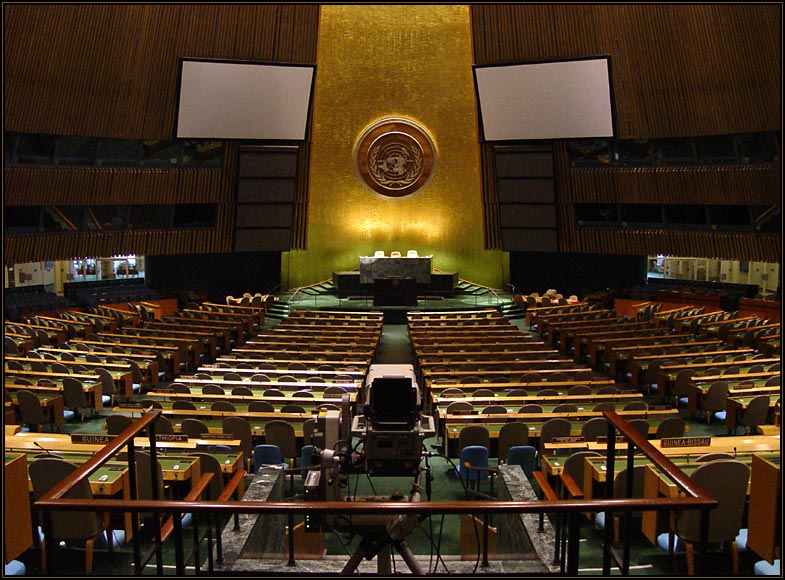The United Nations General Assembly will turn its attention to artificial intelligence on Thursday, addressing a resolution defining the potential transformative benefits and drawbacks of this technology and calling for the establishment of international standards.
The document, supported by many countries, emphasizes the importance of creating frameworks to ensure that artificial intelligence systems are secure, safe, and reliable. However, it deliberately overlooks addressing the use of artificial intelligence in the military sector.
Overall, the action focuses on the beneficial possibilities of technology and calls for joint efforts to “bridge gaps in artificial intelligence and other digital fields between and within countries.”
The initial resolution on this issue was proposed by the United States and is expected to be presented to the Assembly for approval next Thursday.
The aim is also to facilitate and promote digital transition and equitable distribution of artificial intelligence, contributing to the achievement of the United Nations’ Sustainable Development Goals. These goals aim to ensure a better future for all people by 2030.
“Given the rapid evolution of artificial intelligence technologies, it is essential and presents a unique opportunity for member states to respond to this pivotal juncture through unified efforts”
This was stated by Linda Thomas-Greenfield, the U.S. Ambassador to the United Nations, during her joint statement on behalf of many supporting countries of the initiative.
Richard Joan, an expert at the International Crisis Group, believes that the United States deliberately focuses on development activities as a strategy to gain the favor of less wealthy countries.
It is suggested that discussing ways in which artificial intelligence can contribute to the progress of developing countries is a simpler starting point than directly addressing security and safety issues.
The prepared document acknowledges the risks associated with technology being used to cause harm deliberately. It also indicates that in the absence of preventive measures, artificial intelligence poses a threat to human rights erosion, perpetuation of biases, and violation of individuals’ data privacy.
As a result, it calls on member states and interested parties to avoid using or discontinue using artificial intelligence systems that cannot be managed according to international human rights laws, or those that pose significant risks to human rights protection.
Issuing warnings about potential risks of technology, especially regarding artificial intelligence systems capable of generating content, has become more common. There are serious concerns about its impact on democratic processes and societal stability, particularly due to the possibility of using such tools to produce and spread fake images and audios to undermine electoral processes.
The Secretary-General of the United Nations, António Guterres, emphasizes the importance of regulating artificial intelligence and calls for the establishment of a specialized agency under the United Nations for this purpose, based on existing frameworks of organizations such as the International Atomic Energy Agency (IAEA).
He consistently points out the danger of spreading misinformation and recently warned that technologies primarily developed by men may lead to biased algorithms that overlook women’s concerns and needs.
He mentioned that algorithms controlled by men have the ability to perpetuate inequality in multiple sectors, including urban development, financial credit evaluation, medical diagnostic imaging, and are likely to impact these areas for years to come.
Joan from the International Crisis Group believes that the United States does not want Guterres to lead this dialogue, given its sensitive nature, thus intervening to influence the discussions.
Different member states of the United Nations, including the United States, China, and South Korea, are competing fiercely to take the lead on a specific issue.
In October, the White House issued regulations aimed at positioning the United States at the forefront of overseeing artificial intelligence, with President Joe Biden emphasizing the importance of effective management of this technology.
(Agence France-Presse – AFP)


